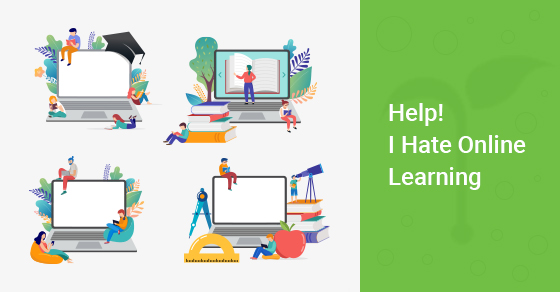Thanks to the COVID-19 pandemic, millions of students across the country are now participating in virtual classes. For many learners who struggle with ADHD, dyslexia, and other challenges, the remote classroom is less than ideal. Try these proven tips and strategies for coping with the new reality.
1. Get Comfortable
Choose a study location that is easy to use, relaxing, and free from distractions (try to avoid the kitchen table and other high-traffic places). Make sure you have the tools you need to maintain focus: a strong internet connection, headphones, ear plugs, something to snack or chew on, a noise machine to use while you are doing independent work, a chair with good back support, and whatever you’ll need throughout the school day, such as a calculator, colored pens, workbooks, course syllabi, anda printer. Be sure to silence your phone.
2. Create a Schedule
Time management is tougher when you’re relying on yourself to remember to change classes, start homework, eat lunch, complete your reading and assignments, and get to bed on time. Create a schedule that breaks down your day to include class times, due dates for assignments, exam times, and quizzes, and put it where you can see it (there are many online schedule-creation tools). Build schedule alerts into your phone and computer calendars as reminders and give yourself time to make transitions.
3. Take a Break
Zoom fatigue is real and the need to sustain attention can be tough. Build breaks into your schedule and make time to get outside and exercise. Physical activity releases the neurotransmitters dopamine, norepinephrine, and serotonin in your brain and that helps with concentration and mood regulation. Listening to lectures or audiobooks while running or walking is a great way to stay healthy, alert, and on task.
4. Be Resourceful
Does your school offer remote student support services such as peer mentoring, tutoring, writing assistance, after-hours and weekend homework help, or coaching? Take advantage of them. And stay in touch with your teachers as much as you can.
For additional suggestions of ways to advocate for yourself, participate effectively online, and use technology and tools in the new normal, check out these tips from the University of Washington.
Evoke also offers coaching, mentoring, and tutoring services designed to support students in a virtual learning environment. Visit us at www.evokelearning.ca or give us a call at (416) 835-0646 to learn how we can help.



